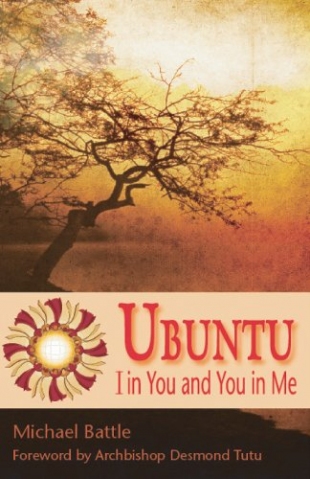"In Tutu's address to the Morehouse Medical School, he described Ubuntu as hospitality, as an open and welcoming attitude that is willing to share, to be generous and caring. Ubuntu is the development of the kind of character in a person who proves a neighbor to a stranger and welcomes them as friends. Ubuntu forms knowledge that human existence is caught up and inextricably bound up with God's creation and that a solitary human being is a contradiction in terms. 'I need other persons,' Tutu concludes, 'to become a person myself.' Tutu repeats his common refrain of Ubuntu:
" 'We say a person is a person through other persons. We don't come fully formed into the world. We learn how to think, how to walk, how to speak, how to behave, indeed how to be human from other human beings. We need other human beings in order to be human. We are made for togetherness, we are made for family, for fellowship, to exist in a tender network of interdependence. That is why apartheid and all racism are so fundamentally evil for they declare that we are made for separation, for enmity, for alienation, and for apartness. Ubuntu enables reconciliation and forgiveness especially when hearts have been inflicted with such pain. . . . This is how you have Ubuntu — you care, you are hospitable, you're gentle, you're compassionate and concerned. Go forth as a new doctor, conscious that everybody is to be revered, reverenced as created in God's image whether inner-city and rural areas — go forth to demonstrate your Ubuntu, to care for them, to heal them especially those who are despised, marginalized. Go forth to make the world a better place for you can make a difference. The task is daunting — of course, but it is our necessary struggle.
"A human being is a 'glorious original' created for existing in a delicate network of relationships. The fundamental law of our being is interdependence, and if this network is interrupted then the whole network breaks."
